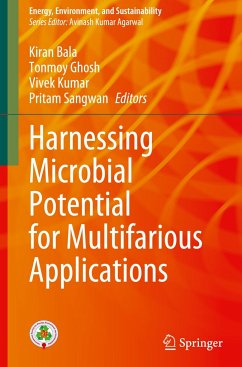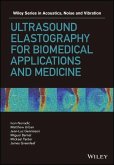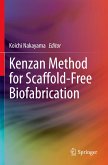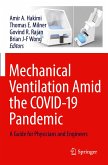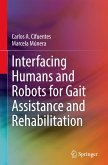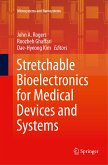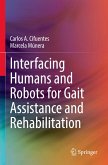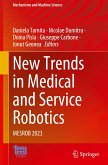Harnessing Microbial Potential for Multifarious Applications
Herausgegeben:Bala, Kiran; Ghosh, Tonmoy; Kumar, Vivek; Sangwan, Pritam
Harnessing Microbial Potential for Multifarious Applications
Herausgegeben:Bala, Kiran; Ghosh, Tonmoy; Kumar, Vivek; Sangwan, Pritam
- Gebundenes Buch
- Merkliste
- Auf die Merkliste
- Bewerten Bewerten
- Teilen
- Produkt teilen
- Produkterinnerung
- Produkterinnerung
This book discusses the current state of strategies that utilize the ability of microbes to remediate waste sources, such as wastewater streams and mine tails, and provide environmentally friendly options to mitigate soil and water pollution caused due to heavy metals. It also provides details about the development of biodegradable plastics from microbial sources and how they can be economical and greener alternatives to the currently used options. It will act as a single platform for combining the remedial powers of microbes which can be both sustainable and practical under a single volume.…mehr
Andere Kunden interessierten sich auch für
![Ultrasound Elastography for Biomedical Applications and Medicine Ultrasound Elastography for Biomedical Applications and Medicine]() Ultrasound Elastography for Biomedical Applications and Medicine190,99 €
Ultrasound Elastography for Biomedical Applications and Medicine190,99 €![Kenzan Method for Scaffold-Free Biofabrication Kenzan Method for Scaffold-Free Biofabrication]() Kenzan Method for Scaffold-Free Biofabrication139,09 €
Kenzan Method for Scaffold-Free Biofabrication139,09 €![Mechanical Ventilation Amid the COVID-19 Pandemic Mechanical Ventilation Amid the COVID-19 Pandemic]() Mechanical Ventilation Amid the COVID-19 Pandemic53,99 €
Mechanical Ventilation Amid the COVID-19 Pandemic53,99 €![Interfacing Humans and Robots for Gait Assistance and Rehabilitation Interfacing Humans and Robots for Gait Assistance and Rehabilitation]() Carlos A. CifuentesInterfacing Humans and Robots for Gait Assistance and Rehabilitation97,99 €
Carlos A. CifuentesInterfacing Humans and Robots for Gait Assistance and Rehabilitation97,99 €![Stretchable Bioelectronics for Medical Devices and Systems Stretchable Bioelectronics for Medical Devices and Systems]() Stretchable Bioelectronics for Medical Devices and Systems89,99 €
Stretchable Bioelectronics for Medical Devices and Systems89,99 €![Interfacing Humans and Robots for Gait Assistance and Rehabilitation Interfacing Humans and Robots for Gait Assistance and Rehabilitation]() Carlos A. CifuentesInterfacing Humans and Robots for Gait Assistance and Rehabilitation69,99 €
Carlos A. CifuentesInterfacing Humans and Robots for Gait Assistance and Rehabilitation69,99 €![New Trends in Medical and Service Robotics New Trends in Medical and Service Robotics]() New Trends in Medical and Service Robotics177,99 €
New Trends in Medical and Service Robotics177,99 €-
-
-
This book discusses the current state of strategies that utilize the ability of microbes to remediate waste sources, such as wastewater streams and mine tails, and provide environmentally friendly options to mitigate soil and water pollution caused due to heavy metals. It also provides details about the development of biodegradable plastics from microbial sources and how they can be economical and greener alternatives to the currently used options. It will act as a single platform for combining the remedial powers of microbes which can be both sustainable and practical under a single volume. This text will be particularly useful for govt. institutions, academicians, and industry professionals, who deal in wastewater remediation and sustainability of currently used sources of plastics and other high-value metabolites. It will also be of practical help to engineers involved in remediation processes for wastewater and industrial waste.
Produktdetails
- Produktdetails
- Energy, Environment, and Sustainability
- Verlag: Springer / Springer Nature Singapore / Springer, Berlin
- Artikelnr. des Verlages: 978-981-97-1151-2
- 2024
- Seitenzahl: 596
- Erscheinungstermin: 10. April 2024
- Englisch
- Abmessung: 241mm x 160mm x 38mm
- Gewicht: 994g
- ISBN-13: 9789819711512
- ISBN-10: 9819711517
- Artikelnr.: 69853537
- Herstellerkennzeichnung
- Books on Demand GmbH
- In de Tarpen 42
- 22848 Norderstedt
- info@bod.de
- 040 53433511
- Energy, Environment, and Sustainability
- Verlag: Springer / Springer Nature Singapore / Springer, Berlin
- Artikelnr. des Verlages: 978-981-97-1151-2
- 2024
- Seitenzahl: 596
- Erscheinungstermin: 10. April 2024
- Englisch
- Abmessung: 241mm x 160mm x 38mm
- Gewicht: 994g
- ISBN-13: 9789819711512
- ISBN-10: 9819711517
- Artikelnr.: 69853537
- Herstellerkennzeichnung
- Books on Demand GmbH
- In de Tarpen 42
- 22848 Norderstedt
- info@bod.de
- 040 53433511
Dr. Kiran Bala: Dr. Kiran Bala is working at IIT Indore. She received her master's and Ph.D. in Environmental Sciences in 2003 and 2007, respectively. She has received various fellowship and awards, such as the DBT Women Scientist Award, Dr. D.S. Kothari Post-Doctoral Fellow Award, DST INSPIRE Faculty Fellow Award and DST Early Career Research Award. In 2022, she got INYAS (Indian National Young Academy of Sciences) membership for the next five years. Recently, she has been elected as core committee member of INYAS for two years. She has more than 65 papers published in journals of international repute. Currently, her research group consists of 10 Ph.D. students, 2 postdoc fellows, and few dissertation students. Dr. Bala's research is broadly focused on the development of an integrated technology which takes nutrients from wastewater and carbon dioxide from industrial flue gas and gives us biofuels, a renewable source of energy. She is member of scientific bodies like BRSI andISEES, etc. She is the editorial board member of the journal "Biotechnology and Genetic Engineering Reviews"- 2023 and also Guest Editor of Journal RSC Advances for special issue "Environmental Electrochemistry for Industrial Wastewater Treatment (2023). Dr. Tonmoy Ghosh: Dr. Tonmoy Ghosh is currently a postdoctoral fellow at the Institute for Water and Wastewater Technology, Durban (IWWT Durban). Dr. Ghosh received his PhD from the Academy of Scientific and Innovative Research (AcSIR). Prior to joining IWWT Durban, Dr. Ghosh was a National Post Doctoral Fellow at Indian Institute of Technology Indore. He has also worked at CSIR-Central Salt & Marine Chemicals Research Institute, India and the International Centre for Genetic Engineering and Biotechnology, India. Dr. Ghosh mainly works in the field of microalgal biotechnology for alternative fuels and niche chemicals. His research interests lie in unravelling the effect of chemical modulators on microalgal and cyanobacterial growth and high-value metabolites, such as phycobiliproteins, polyunsaturated fatty acids, and tocopherols. His doctoral work was chiefly concerned with developing analytical applications for phycobiliproteins using their fluorescence as a tool. Till date, Dr. Ghosh has 28 publications in internationally recognized journals with close to 2000 citations and an h-index of 19; he also has 4 book chapters and 3 granted international patents to his credit. He is also the life member of professional organizations such as The Biotech Research Society of India (BRSI) and the Association of Microbiologists of India (AMI). Prof. Vivek Kumar: Vivek Kumar is Professor in CRDT at Indian Institute of Technology, Delhi. Dr. Kumar is Co-Coordinator of one of the major programs of the Govt. of India, Unnat Bharat Abhiyan (UBA) that aims to utilize knowledge institutions of the country to help villages. Dr. Kumar is coordinating Subject Expert Group activities under UBA and coordinating UBA collaboration with other government departments and organizations for fast tracking rural livelihood. Dr. Kumar is water system and clean technology expert for several industrial sectors and works in process audit, process integration, implementation of cleaner production projects, new greener product development, community engagement, circular economy, and sustainability analysis of technologies. He is also actively involved in several projects of pollution prevention and control, including charter preparation and implementation especially in paper, and textile, industries in Ganga Basin. He is member of several Central Pollution Control Board's committees working for pollution control in process industries. He is currently working on the low footprint domestic sewage treatment systems for cold regions and rural areas, microplastic pollution in water and soil environments. His focus is also on natural packaging materials and valorization of biomass and industrial waste. Dr. Kumar has published around 180 articles in journals, conference proceedings, and books (as chapters). He has completed more than 35 R&D and consultancy projects and is currently implementing 5 R&D and 6 consultancy projects. Dr. Pritam Sangwan: Dr. (Mrs.) Pritam Sangwan is currently working as Scientist 'E' & Joint Director at Centre for Fire, Explosive and Environment Safety (CFEES), Defence Research & Development Organization (DRDO), New Delhi. Before joining DRDO she has also worked as Assistant Professors with Gurgaon College of Engineering, Gurgaon. She has got wide experience in the areas of remediation of explosive contaminated sites, solid/hazardous waste management, wastewater treatment, bioremediation, and environmental impact assessment. She has been awarded many fellowships/awards during her carrier. She has been awarded as 'Scientist of the Year-2018' award by Secretary, Department of Defence (DoD) & Chairman DRDO for her path breakingresearch and development. She was also awarded Merit Scholarship from Kurukshetra University, Research Fellowship (URF) from Guru Jambheshwar University of Science & Technology, Hisar. She was also awarded NFP fellowship by UNESCO for a course on Waste Management & Engineering at UNESCO-IHE Institute for Water Education in Delft, Netherlands. She was also awarded Roll of Honor by Kurukshetra University, Kurukshetra. She has published many research papers & book chapters in national and international journals of repute. She also has many technical reports, guidelines, and a patent to her credit. She has also presented many papers in various conferences at national and international level. She is the lifetime member of Biotech research society of India (BRSI) and Trivandrum and High Energy Materials society of India (HEMSI), Chandigarh.
Chapter 1: The use of seaweeds in the development of biodegradable packaging - recent progress for a future plastic-free.- Chapter 2: Microbial biosensors for environmental quality monitoring: Recent advances and future outlook.- Chapter 3: Exploring Microalgae for Vegan Therapeutic Compounds: Unveiling the Potential of Vegan Pharmaceuticals.- Chapter 4: Microbial Pigments as Vegan Colors for Food and Pharmaceuticals: A sustainable Approach.- Chapter 5: Exploring Microbes for Biofuels Production and Wastewater Treatment: An Eco-friendly Approach.- Chapter 6: Manganese Contaminant: In-situ Advancement in Microbial Assisted Remediation Approach.- Chapter 7: Unleashing Microbial Avengers.- Chapter 8: Greener approach towards sustainable green plastics.- Chapter 9: Zero-waste processes utilizing microbes.- Chapter 10: Cyano-metabolites: Biotechnology, Biochemistry and Biotherapeutics.- Chapter 11: Microbial remediation technologies for hazardous metals in soil, sediments, and water.- Chapter 12: Bioplastic: Unravelling the Sustainable approach for petroleum plastic.- Chapter 13: Biodegradable plastics: Environmentally friendly alternative to petroleum products.- Chapter 14: Microbial Remediation Technologies for Mining Waste Management.- Chapter 15: Biosensor: application in environmental management.- Chapter 16: Role of plastic degrading microorganisms in microplastic contaminated natural environments.- Chapter 17: Novel uses of fungi in products and services.- Chapter 18: A Review of the Biotic Conversion and Diminution of 2,4,6-Trinitrotoluene TNT by the Bacterial Breakdown and the Interaction of Duo.- Chapter 19: Cellulases from psychrophilic and psychrotropic microorganisms and its potential applications.- Chapter 20: Biofuel Production from Microbial Sources: Advances and Challenges.- Chapter 21: Biohydrogen: Harnessing the Power of Microbes as an Alternative Fuel.- Chapter 22: Microbial communities for plastic waste remediation.
Chapter 1: The use of seaweeds in the development of biodegradable packaging - recent progress for a future plastic-free.- Chapter 2: Microbial biosensors for environmental quality monitoring: Recent advances and future outlook.- Chapter 3: Exploring Microalgae for Vegan Therapeutic Compounds: Unveiling the Potential of Vegan Pharmaceuticals.- Chapter 4: Microbial Pigments as Vegan Colors for Food and Pharmaceuticals: A sustainable Approach.- Chapter 5: Exploring Microbes for Biofuels Production and Wastewater Treatment: An Eco-friendly Approach.- Chapter 6: Manganese Contaminant: In-situ Advancement in Microbial Assisted Remediation Approach.- Chapter 7: Unleashing Microbial Avengers.- Chapter 8: Greener approach towards sustainable green plastics.- Chapter 9: Zero-waste processes utilizing microbes.- Chapter 10: Cyano-metabolites: Biotechnology, Biochemistry and Biotherapeutics.- Chapter 11: Microbial remediation technologies for hazardous metals in soil, sediments, and water.- Chapter 12: Bioplastic: Unravelling the Sustainable approach for petroleum plastic.- Chapter 13: Biodegradable plastics: Environmentally friendly alternative to petroleum products.- Chapter 14: Microbial Remediation Technologies for Mining Waste Management.- Chapter 15: Biosensor: application in environmental management.- Chapter 16: Role of plastic degrading microorganisms in microplastic contaminated natural environments.- Chapter 17: Novel uses of fungi in products and services.- Chapter 18: A Review of the Biotic Conversion and Diminution of 2,4,6-Trinitrotoluene TNT by the Bacterial Breakdown and the Interaction of Duo.- Chapter 19: Cellulases from psychrophilic and psychrotropic microorganisms and its potential applications.- Chapter 20: Biofuel Production from Microbial Sources: Advances and Challenges.- Chapter 21: Biohydrogen: Harnessing the Power of Microbes as an Alternative Fuel.- Chapter 22: Microbial communities for plastic waste remediation.

